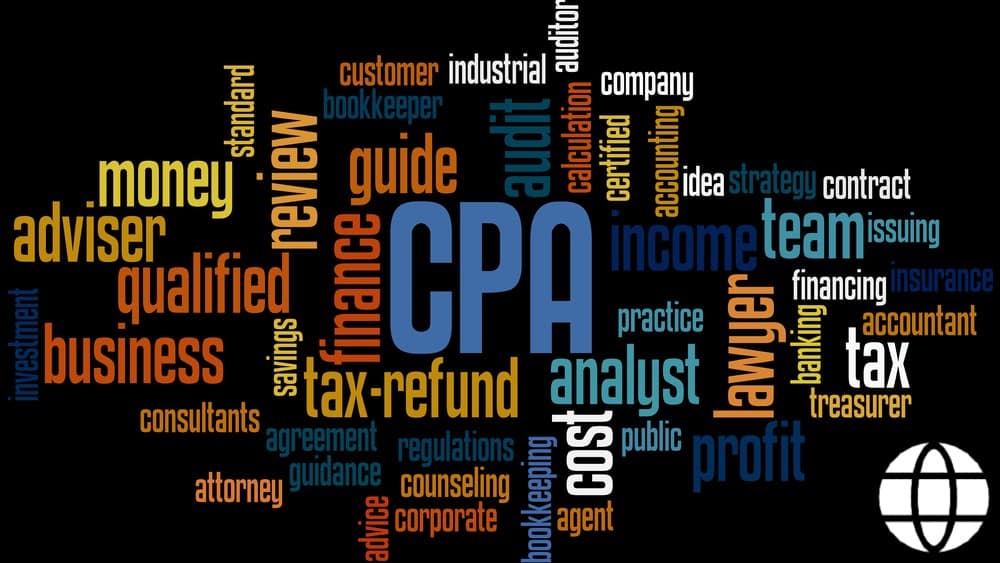Hello there! Welcome to another insightful article about CPA financial advisors.
By the end of this article, you’ll have a thorough understanding of a CPA financial planner’s career path and what they do.
Specifically, you’ll learn about:
Let’s dive in!
What is a CPA Financial Planner?
Traditionally, certified public accountants are known for audits and tax services.
But today, the landscape of these financial professionals is changing as more and more CPAs are not only offering traditional services but also financial planning services.
CPA financial planners help clients with personal financial planning and financial advisory services.
They offer investment planning, retirement planning, estate planning, risk management, wealth management, and insurance services.
They may choose to specialize in one of these services or be generalists.
Given that CPAs majorly deal with client’s tax returns and compliance issues, it’s natural for them to transition into financial planning as they already know their clients’ financial situation.
Not only that, they have established trust with their clients, built a robust relationship, and, therefore, leveraging that connection to further guide their clients in financial planning makes more sense.
Moreover, the AICPA has a strict code of professional conduct that requires all CPA holders to always act in the best interest of their clients.
Clearly, CPA financial advisors are already ahead of the game, as they adhere to fiduciary standards.
Even more important, AICPA requires its members who practice personal financial planning to comply with the Statement on Standards in Personal Financial Planning Services (SSPFPS) framework.
The SSPFPS framework provides guidance and standards of practice for CPAs offering financial planning services.
CPA financial planners work in wealth management firms, banks, investment firms, securities, and commodity brokerage firms.
Some have opened their own practices.
Why Become a CPA Financial Advisor
As it is, tax planning and auditing services are becoming increasingly competitive, given the many online tax preparation and auditing firms.
Adding financial planning to one’s areas of expertise can give one several advantages in the accounting profession.
Here are the top three reasons why financial advising is a great addition to a certified financial planner credential.
Set’s One Apart
A CPA with expertise in financial planning offers all the services a client may need in one place.
Clients can access wealth management and investment planning services and still get auditing, tax planning, and accounting services under one roof.
If that’s not a competitive advantage, we don’t know what is.
Further, research shows that clients prefer a fee-only financial advisor with whom they can build a personal relationship rather than brokerage firms or financial firms.
And since a CPA establishes a relationship with their client as their go-to tax preparer, offering additional services will only strengthen this bond and make them even more appealing to clients.
Increases Client Satisfaction
A CPA financial advisor is a one-stop shop where clients can easily meet their financial goals.
These financial professionals ensure clients’ financial plans align with every aspect of their financial life, from budgeting to saving for a house to retirement planning, tax strategies, and investment planning.
They cover it all.
This one-stop-shop strategy is convenient and increases clients’ satisfaction.
When clients are satisfied, they’ll bring more business, which leads to higher retention capacity and ultimately more income.
Clients are also more likely to refer friends and colleagues.
Increases Revenue
Research shows that when CPAs add financial planning services to their belt, they are likely to increase billing by 20%.
Additional services mean clients will get more value, which allows a CPA financial planner or an accounting firm to increase their fees.
Besides, there’ll be additional income streams from several areas of personal financial planning.
These factors increase revenue per client, which means more earnings for a CPA financial advisor and more profits for an accounting firm.
Other Licenses and Registration Requirements
CPAs don’t necessarily need an additional license if they offer general financial planning services.
However, suppose one is interested in buying or selling investment products, offering specific investment advice, managing clients’ assets, or managing accounts with discretionary authority.
In that case, there is a wide range of licenses they should earn from FINRA or their state.
If a CPA is operating the client’s account on their behalf and offering specific investment advice on investment vehicles and products, they are required to become a registered investment advisor.
To earn this credential, a CPA must take the Series 65 exam.
One can also choose to do Series 7 and Series 66 exams instead.
Suppose a CPA already has a certified financial planner license.
They are exempt from the Series 65 exam.
In the cases where the CPA firm is a small business, managing less than $100 million of client assets, then one will register with their state division of securities.
If they manage $100 million or more, they’ll register with the Securities Exchange Commission at the federal level.
Certified public accountants looking to sell securities such as bonds, individual equities, annuities, mutual funds, options, and stocks should take FINRA’s Series 7 exam.
To be eligible for this exam, one must be sponsored by a FINRA member firm.
They must also pass the SIE exam.
Suppose a CPA professional shifts their interest to selling fixed annuities.
They must take a pre-licensing course and sit for an exam before earning a life insurance or annuity license.
CPA Financial Advisor Certifications
There are three certifications that a CPA can earn to get started in personal financial planning.
These certifications are administered by different bodies, and the requirements vary widely.
Here is an overview of the professional certifications, and what it takes to get started.
Personal Financial Specialist (PFS)
PFS certification is offered by the AICPA.
To be eligible for this certification, candidates must have two years of experience in personal financial planning.
Apart from experience, candidates should also have 80 hours of personal financial planning education or related courses within the last five years.
One can also qualify for the certification if they are a certified financial planner or chartered financial consultant.
Moreover, one can be eligible for the personal financial specialist certification by taking AICPA personal financial planning courses and sitting for the AICPA review course exam.
These courses cover several aspects of personal financial planning including, retirement, insurance, estate, taxation, and investment, just to mention a few.
The designation holders must complete 60 hours of continuing professional education related to personal financial planning every three years to maintain the certification.
Throughout their practice, personal financial specialists must maintain good standing with AICPA.
Certified Financial Planner (CFP)
Aspiring CPA financial advisors can also choose certified financial planner certification.
This certification is administered by the Certified Financial Planner Board of Standards.
The board requires CFP holders to have a bachelor’s degree from an accredited university.
In addition, they should have three years of full-time work experience in financial planning.
More than that, candidates must pass the CFP exam and comply with the CFP Board code of ethics.
To maintain the certification, the designation holders must meet 30 hours of continuing education every two years.
Two of these hours must be in ethics.
Chartered Financial Consultant (ChFC)
ChFC is offered by the American College.
The certification mainly focuses on small business owners.
It equips candidates with the knowledge to help professionals and small business owners in areas of income tax, insurance, retirement planning, investment, and estate planning.
The chartered financial consultant coursework constitutes seven compulsory courses and two electives.
The requirements to enroll for this certification include three years of full-time work experience with businesses within the last five years and a bachelor’s degree from an accredited university, which can be a substitute for one year of experience.
ChFC designation holders should also comply with the institute’s code of ethics.
To maintain the ChFC, one must meet 30 hours of continuing education every two years.
Conclusion
CPA financial advisors are CPAs who offer financial planning services on top of what they are known for, tax services.
These financial professionals can take additional licenses and certifications, depending on the areas they want to specialize in.
CPA financial planners have an edge in the industry as their services take a holistic approach to addressing clients’ financial needs.









